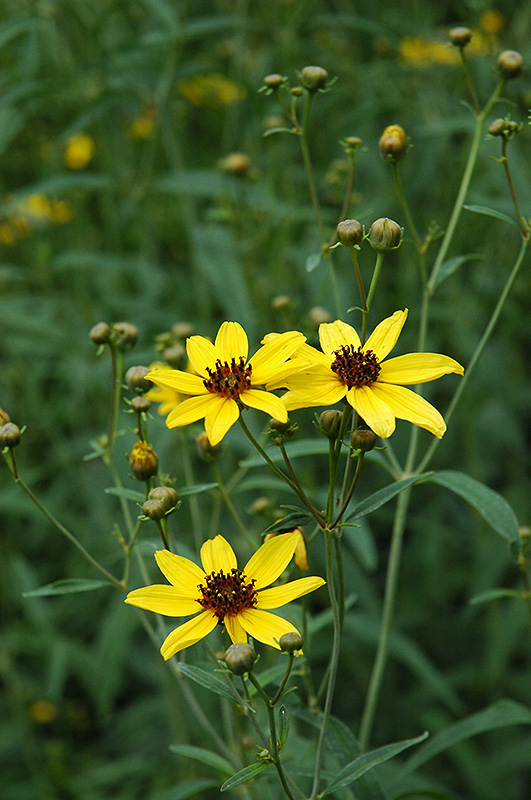>> Home
Height: 3 feet
Spread: 24 inches
Sunlight:
![]()
Hardiness Zone: 4
Description:
Heat and drought tolerant, this tall variety features sunny yellow daisy-like blooms that sit atop fragrant, anise scented foliage; an easy to grow addition to wildflower gardens, cottage gardens or fresh-cut arrangements; deadhead to control self-seeding
Ornamental Features
Tall Tickseed has masses of beautiful yellow daisy flowers with dark brown eyes at the ends of the stems from mid summer to early fall, which are most effective when planted in groupings. The flowers are excellent for cutting. Its fragrant ferny leaves remain forest green in color throughout the season.
Landscape Attributes
Tall Tickseed is an herbaceous perennial with an upright spreading habit of growth. Its relatively fine texture sets it apart from other garden plants with less refined foliage.
This is a relatively low maintenance plant, and is best cleaned up in early spring before it resumes active growth for the season. It is a good choice for attracting birds and butterflies to your yard, but is not particularly attractive to deer who tend to leave it alone in favor of tastier treats. Gardeners should be aware of the following characteristic(s) that may warrant special consideration;
- Self-Seeding
Tall Tickseed is recommended for the following landscape applications;
- Mass Planting
- General Garden Use
- Naturalizing And Woodland Gardens
Planting & Growing
Tall Tickseed will grow to be about 3 feet tall at maturity, with a spread of 24 inches. Its foliage tends to remain dense right to the ground, not requiring facer plants in front. It grows at a medium rate, and under ideal conditions can be expected to live for approximately 10 years. As an herbaceous perennial, this plant will usually die back to the crown each winter, and will regrow from the base each spring. Be careful not to disturb the crown in late winter when it may not be readily seen!
This plant should only be grown in full sunlight. It is very adaptable to both dry and moist growing conditions, but will not tolerate any standing water. It is not particular as to soil pH, but grows best in poor soils. It is somewhat tolerant of urban pollution. This species is native to parts of North America. It can be propagated by division.
